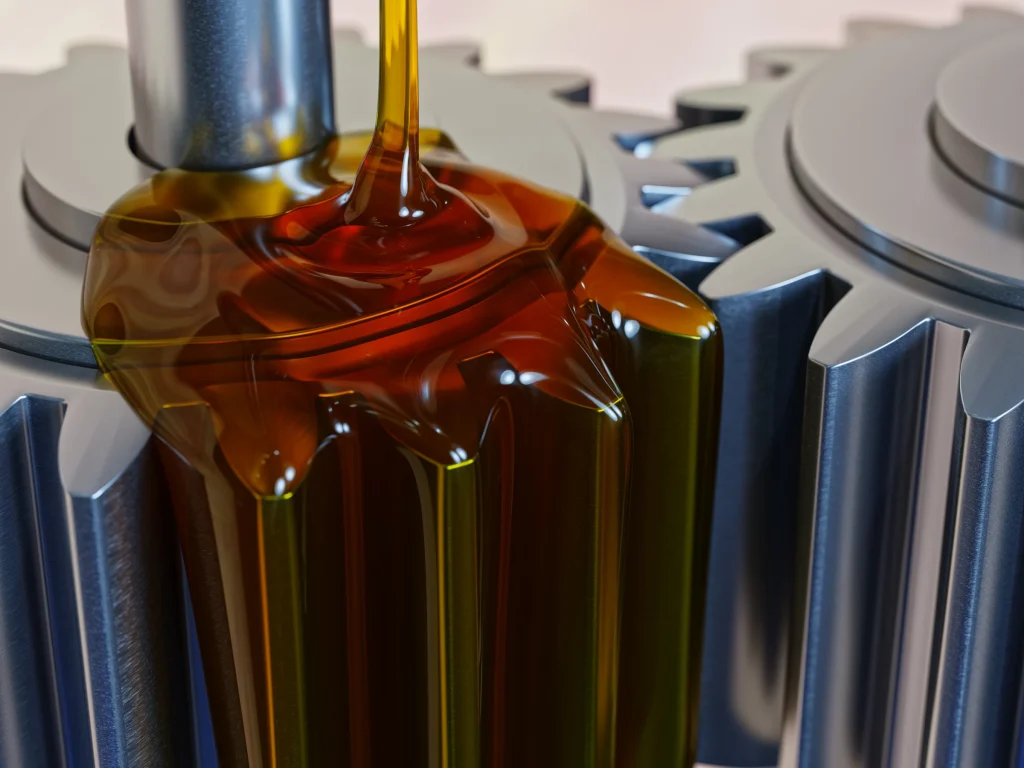The Best Industrial Grease Types for Different Construction Applications

In the demanding world of construction, machinery and equipment endure intense wear and tear every day. Proper lubrication is essential to ensure smooth operation, reduce downtime, and extend the lifespan of costly construction assets. Among the various lubricants available, Industrial Grease plays a critical role in protecting machinery parts from friction, corrosion, and contamination. But with a wide range of industrial grease types on the market, selecting the right one for specific construction applications can be a challenge.
At EVISCO, we understand that the right industrial grease choice is fundamental to efficient maintenance and reliable performance. This article explores the best industrial grease types suited for different construction equipment and applications, providing valuable insights to help you optimize your lubrication strategy.
Understanding Industrial Grease and Its Importance in Construction
Industrial grease is a semi-solid lubricant made of base oils, thickening agents, and additives that work together to reduce friction and wear between moving parts. Unlike liquid oils, grease stays in place longer, offering superior protection under heavy loads and harsh environmental conditions often encountered on construction sites.
Construction equipment such as excavators, bulldozers, cranes, and loaders operate in dusty, wet, and high-pressure environments. Industrial grease acts as a barrier against contaminants like dirt, water, and debris while maintaining lubrication even under extreme temperatures and heavy mechanical stress. Proper grease selection ensures equipment reliability, reduces maintenance costs, and prevents unexpected breakdowns that can delay projects.
Types of Industrial Grease Commonly Used in Construction
Choosing the best industrial grease involves understanding the different types available and their unique properties. Greases vary mainly by the thickener used, base oil type, and additive packages, which influence their performance characteristics.
Lithium-Based Grease
Lithium-based grease is the most widely used type in construction due to its excellent water resistance, mechanical stability, and temperature tolerance. Its versatility makes it ideal for general-purpose lubrication, particularly in chassis, bearings, and pivot points.
Lithium grease maintains consistency under heavy loads and resists water washout, which is crucial in outdoor construction environments. Additionally, it has good oxidation stability, extending the grease service life and reducing the frequency of reapplication.
Calcium-Based Grease
Calcium-based grease is known for its superior water resistance, making it suitable for equipment exposed to wet conditions such as marine construction or muddy terrains. However, it has a lower temperature tolerance compared to lithium grease, which limits its use in high-heat applications.
This type of grease is commonly applied in wheel bearings, sliding surfaces, and areas where moisture exposure is high. Its excellent adhesion properties ensure that it stays in place despite water and contaminants.
Polyurea Grease
Polyurea grease is favored for its long service life and excellent thermal stability. It performs well under high temperatures and heavy loads, making it suitable for electric motor bearings, high-speed bearings, and applications requiring extended relubrication intervals.
Polyurea grease offers excellent oxidation resistance, which reduces the formation of deposits and extends equipment life. Its synthetic base oil variants provide superior performance in extreme conditions, making it a premium choice for critical construction machinery components.
Aluminum Complex Grease
Aluminum complex grease combines high dropping points and excellent mechanical stability, making it ideal for heavy-duty applications that demand resistance to high temperature and water. It is commonly used in bearings and joints subjected to continuous stress and contamination.
This grease type has excellent adhesive properties, preventing leakage and protecting against corrosion. It is often preferred in hydraulic equipment and cranes where operational reliability is paramount.
Bentone Grease
Bentone grease is a type of clay-thickened grease used in situations requiring good resistance to water and solvents. It is often employed in marine construction and equipment that comes into contact with harsh chemicals.
Though less common in general construction, Bentone grease provides excellent performance in specialized environments where chemical exposure or water contamination is prevalent.
Matching Industrial Grease to Construction Equipment Applications
Selecting the appropriate industrial grease type for your construction machinery depends on factors such as operating temperature, load, speed, environmental exposure, and maintenance schedules. Here is a detailed look at grease applications across various construction equipment:
Excavators and Bulldozers
Excavators and bulldozers experience heavy loads, high shock pressures, and frequent exposure to dirt and moisture. Lithium-based grease is often the top choice for these machines due to its water resistance and ability to withstand heavy loads. For components such as pins, bushings, and roller bearings, aluminum complex grease can provide enhanced protection in high-temperature zones.
Cranes and Hoisting Equipment
Cranes require grease that can handle high loads and reduce wear on wire ropes, pulleys, and bearings. Polyurea grease is well-suited for these applications because of its high thermal stability and long service intervals. Its resistance to oxidation and mechanical breakdown ensures smooth, reliable operation of lifting mechanisms.
Wheel Loaders and Dump Trucks
Wheel loaders and dump trucks operate in dirty, dusty environments and often face water exposure. Calcium-based grease offers excellent water repellency for wheel bearings and steering components, while lithium-based grease can be applied to chassis and suspension parts for general lubrication.
Concrete Mixers and Pumps
Equipment like concrete mixers and pumps demands grease that resists contamination from cement and water. Aluminum complex grease is commonly used for its high dropping point and excellent adhesion to moving parts, ensuring lubrication even under severe conditions.
Hydraulic Equipment
Hydraulic cylinders and components require grease that can endure pressure without breaking down. Aluminum complex and polyurea greases are recommended here for their durability and resistance to oxidation and water ingress.
How to Optimize Industrial Grease Use on Construction Sites
Proper application and maintenance practices are just as important as grease selection. Over-greasing can cause seal damage and attract contaminants, while under-greasing increases wear and equipment failure risks. Monitoring grease condition and scheduling timely reapplications based on manufacturer recommendations can extend equipment life and reduce costs.
Using grease guns and automated lubrication systems ensures precise application to critical points. Training maintenance personnel on correct grease types and usage can prevent costly mistakes and improve machinery uptime.
Conclusion
Industrial grease is a cornerstone of construction equipment maintenance, directly impacting machine performance and longevity. Understanding the specific properties of different industrial grease types and their ideal applications empowers construction professionals to make informed lubrication decisions. Whether you are dealing with heavy earthmoving machines, cranes, or hydraulic systems, selecting the right grease enhances operational efficiency and reduces unexpected downtime.
At EVISCO, we emphasize the importance of tailored lubrication strategies and encourage construction managers to evaluate environmental conditions, load requirements, and equipment design when choosing industrial grease. By investing in the correct grease and maintaining proper application practices, construction projects run smoother, safer, and more cost-effectively.




